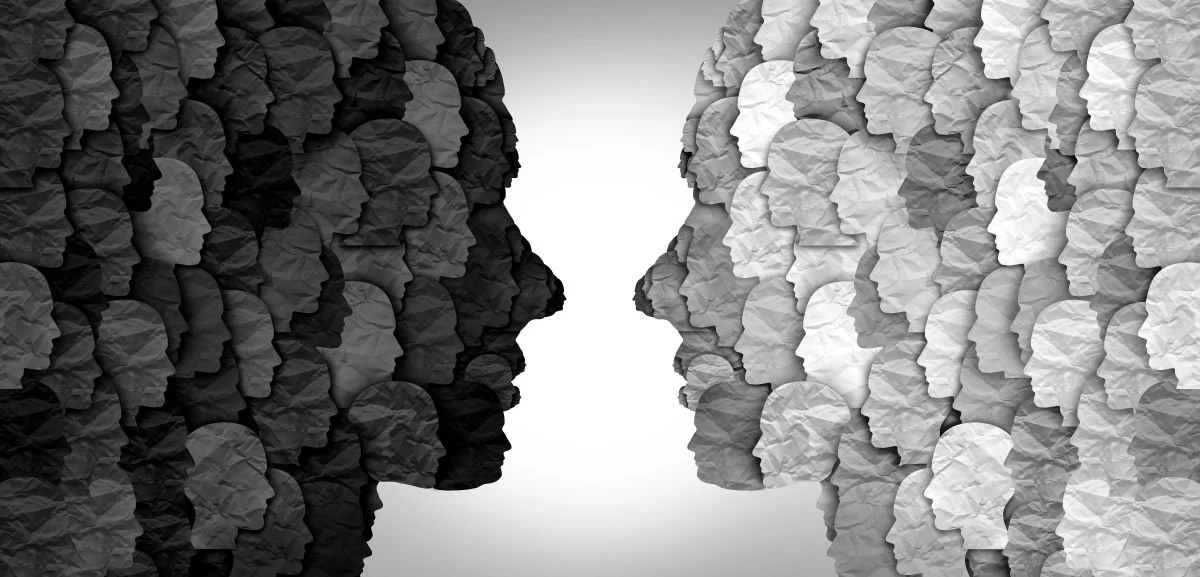Blogs
Home / Blog

Got Questions? We’ve Got Answers!
Why do I struggle to be assertive?
Being assertive is a valuable skill that allows you to express your needs, set boundaries, and communicate effectively while respecting others. However, many people struggle with assertiveness due to a variety of personal, emotional, and environmental factors. If you find it hard to stand up for yourself or voice your opinions, you’re not alone. Understanding the root causes of this struggle is the first step toward building confidence and assertive communication skills.
What is considered pettiness?
Pettiness often describes behavior or actions that focus on trivial matters, usually to the detriment of harmony and goodwill. It involves giving undue importance to minor details or offenses, often accompanied by an exaggerated response. Being petty can lead to unnecessary conflict, strained relationships, and a reputation for being overly sensitive or difficult. Pettiness can be difficult to identify in part because what counts as petty is based on subjective judgement. Below are some key traits and examples of what is generally considered pettiness.
Is Compulsive Buying a Coping Mechanism?
Compulsive buying, often referred to as shopping addiction, is a behavior that many people use to cope with emotional distress. For some, it’s a way to fill a void or distract from difficult emotions. But is this habit truly a coping mechanism? Let’s explore the psychology behind compulsive buying and the reasons it might serve as a temporary escape from life’s challenges.
How do you know when it’s time to quit your job?
Deciding to leave a job is a big step, and it can be both exciting and nerve-wracking. The signs that it might be time to move on aren’t always obvious, and many people struggle with knowing when to take the leap. If you’re feeling unsure, it’s essential to reflect on your current situation and identify whether your job is still serving your personal and professional goals; or perhaps if it’s the best option for your current context and needs. Below are key indicators to help you recognize when it might be time to seriously consider a change, and some very helpful insights about trying to make informed decisions without real information.
Are mental health problems increasing?
Mental health is a growing topic of concern in today’s society, with headlines often suggesting that issues like anxiety, depression, and stress are on the rise. Diagnosis like “Bipolar Disorder” or “Borderline” are often used casually in the popular vocabulary to describe someone’s observed behavioral pattern, without any medical diagnostic evidence. But is this truly the case? Let’s explore the factors contributing to this perception, whether it aligns with reality, and what it means for individuals and communities.
What is mindfulness?
In a world full of distractions, mindfulness has emerged as a powerful tool to help us navigate life with clarity and balance. But what exactly is mindfulness, and why has it become so popular? Many people assume that mindfulness is long periods of meditation sitting pretending to have patience and pretending that it’s going well. Not so. Mindfulness is a broad concept that encompasses many kinds of activities, and even if you’ve had frustrating experiences with meditative practices in the past, it’s highly likely there’s a mindfulness practice that will fit your personality and prefences and present you with the opportunity to have a great experience and all the benefits of the practice.
How To Let Go of Past Hurt
Holding on to past hurt can feel like carrying a heavy weight everywhere you go. Whether it's the pain of a broken relationship, a betrayal, or a difficult life experience, clinging to old wounds can prevent you from fully embracing the present and moving forward. Letting go of past hurt is not about forgetting or minimizing what happened—it's about freeing yourself from the emotional chains that keep you stuck in a cycle of pain. Here are practical steps to help you begin the journey of letting go and reclaiming your emotional freedom.
How Can I Stop Caring About What Others Think?
Caring about what others think is a natural human tendency. We all seek validation, approval, and acceptance in some form. However, when the fear of judgment or criticism starts to dictate your actions, decisions, and self-worth, it can become a limiting force in your life. Constantly worrying about others' opinions can prevent you from fully embracing who you are, pursuing your goals, and living authentically. It can keep you on a miserable mental hamster wheel of trying-to-keep-up-with the tsunami wave of input we are hit with every minute about what everyone else is doing. So the question is: how can you stop caring so much about what others think, or, can you notice when it’s happening and get off the mental, physical, and financial hamster wheel? YES. It is possible to shift your mindset and develop the confidence to prioritize your own beliefs and values over external judgment.
What qualifies as social media addiction?
Social media has become an integral part of daily life for many people, providing platforms for connection, entertainment, and information. However, for some, the time spent on social media platforms can spiral out of control, leading to negative consequences in their personal and professional lives. Social media addiction is a growing concern, and it can be difficult to recognize the tipping point when casual use becomes problematic. Understanding the signs of social media addiction and what qualifies as excessive use can help individuals reclaim their time, improve their well-being, and establish a healthier relationship with these platforms.
What is toxic comparison?
Comparison is a natural part of human behavior. We often compare ourselves to others to gauge our progress, understand where we stand, and motivate ourselves to improve. However, when comparison becomes excessive or harmful, it can lead to what is known as "toxic comparison." This form of comparison can erode self-esteem, increase feelings of inadequacy, and even foster resentment toward others. Understanding what toxic comparison is and how it manifests can help us avoid its negative effects and focus on building a more positive and self-compassionate mindset.
How is envy different than jealousy?
Envy and jealousy are emotions that are often used interchangeably in everyday conversation. However, they are distinct feelings that have different meanings and triggers. Understanding the difference between envy and jealousy is important because it helps us better navigate our emotional responses, cultivate healthier relationships, and cope with the discomfort of these challenging feelings. While both can be unpleasant and have the potential to harm us if not managed, recognizing the subtle nuances between them can guide us toward a more balanced emotional life, and towards attainment of what’s important to us.
Why can’t I deal with frustration?
Frustration is a natural emotion that everyone experiences from time to time. However, some people find it especially challenging to cope with it, even when faced with relatively small setbacks. If you’re one of those individuals who often struggles to deal with frustration, you're not alone. Understanding the root causes of this difficulty can help you manage your emotions more effectively and reduce the negative impact frustration has on your life.
How to handle political differences in relationships?
In today's polarized world, political differences can sometimes strain relationships, whether romantic, familial, or friendships. Navigating these differences requires patience, understanding, and a willingness to engage constructively. While it may feel daunting, addressing political disagreements thoughtfully can even strengthen your bond over time. Here are some strategies to help you manage political differences in relationships effectively.
Why can’t I be okay with being alone?
Struggling to be okay with being alone is more common than you might think. Many people feel discomfort, restlessness, or even fear when faced with solitude. This issue often stems from deeper emotional, social, or cultural factors. Understanding these underlying causes and learning how to embrace alone time can help you build a healthier relationship with yourself.
Train your brain to stop worrying about everything
In many ways, we’re wired to worry because looking for what might go wrong is a survival adaptation. Our brains don’t know that many of the things we CAN worry about don’t NEED to be worried about. Training your brain to stop worrying involves building new mental habits and developing tools to better manage anxious thoughts. Here are some practical steps you can take:
How much caffeine creates dependency?
Caffeine is a central nervous system stimulant that millions of people consume daily through coffee, tea, energy drinks, and other sources. It boosts alertness, improves focus, and can even enhance physical performance. But as beneficial as it may seem, caffeine also has a darker side: dependency. Understanding how much caffeine it takes to develop a dependency is crucial for managing consumption and avoiding unwanted side effects.
How Do I Stop Being So Angry at My Partner?
Feeling angry at your partner is a natural part of any relationship. However, if that anger starts to dominate your interactions, it can harm your connection and personal well-being. Here are practical steps to recognize, manage and reduce anger toward your partner, and take constructive steps towards healing and repair.
Is it normal for couples to have communication issues?
Communication is the foundation of any healthy relationship, but even the strongest couples can face challenges in this area. It’s important to know that experiencing communication issues is entirely normal and often a part of navigating life together as a couple. Relationships are dynamic, and as people grow and change, so too do their communication styles and needs. Here’s a closer look at why communication issues arise and how to address them effectively.
Can you fix your attachment style?
Your attachment style can deeply influence how you navigate relationships, both romantic and otherwise. Attachment styles—secure, anxious, avoidant, or disorganized—are shaped by early childhood experiences but can manifest throughout adulthood. While these patterns might feel permanent, the good news is that with self-awareness and effort, attachment styles can shift toward greater security.
Why am I passive-aggressive in relationships?
Passive-aggressive behavior can be confusing and frustrating for both the person exhibiting it and the people around them. In relationships, it can hinder communication, breed resentment, and prevent healthy conflict resolution. But why do some people act passive-aggressively in relationships? Let’s explore the underlying reasons and how to address this behavior.





















